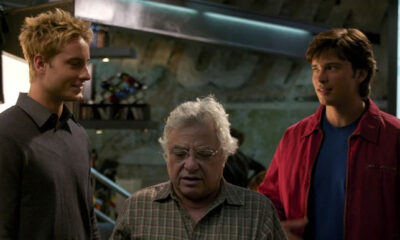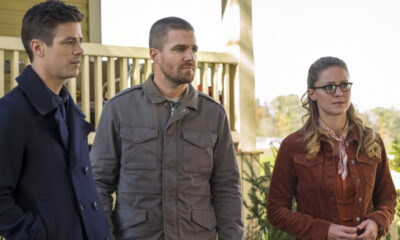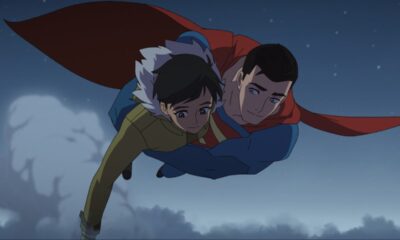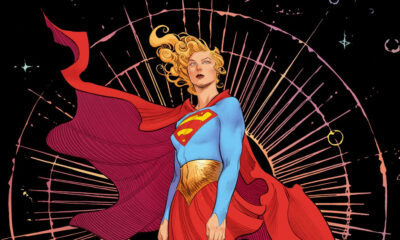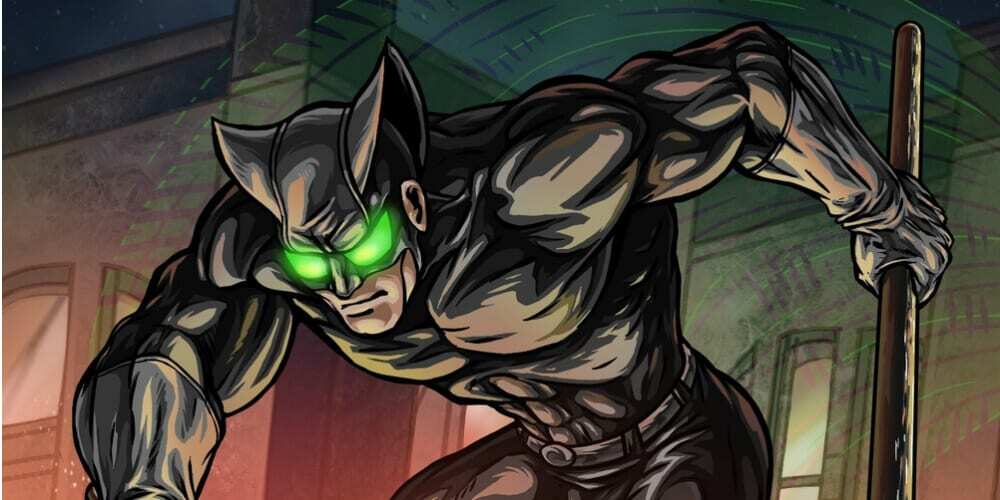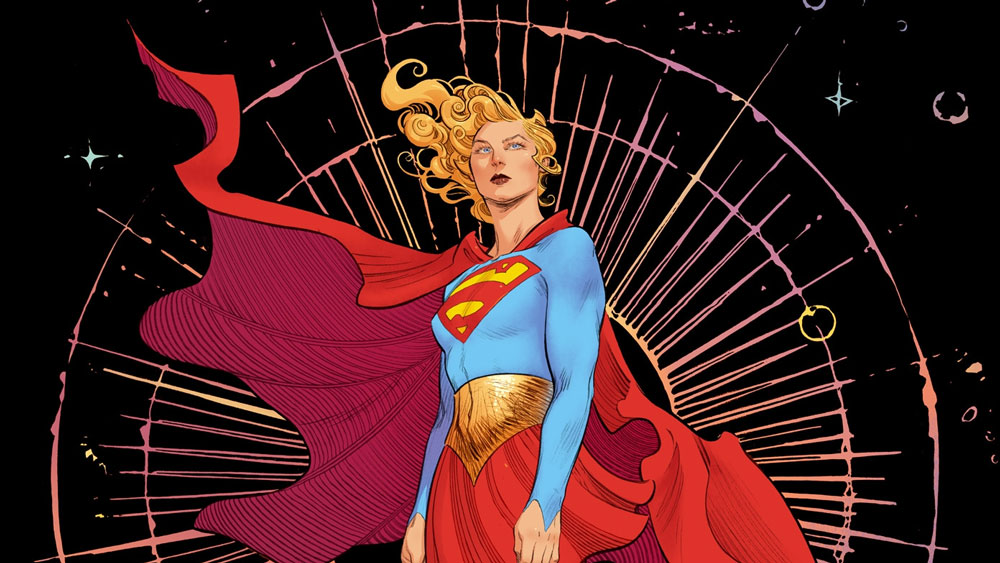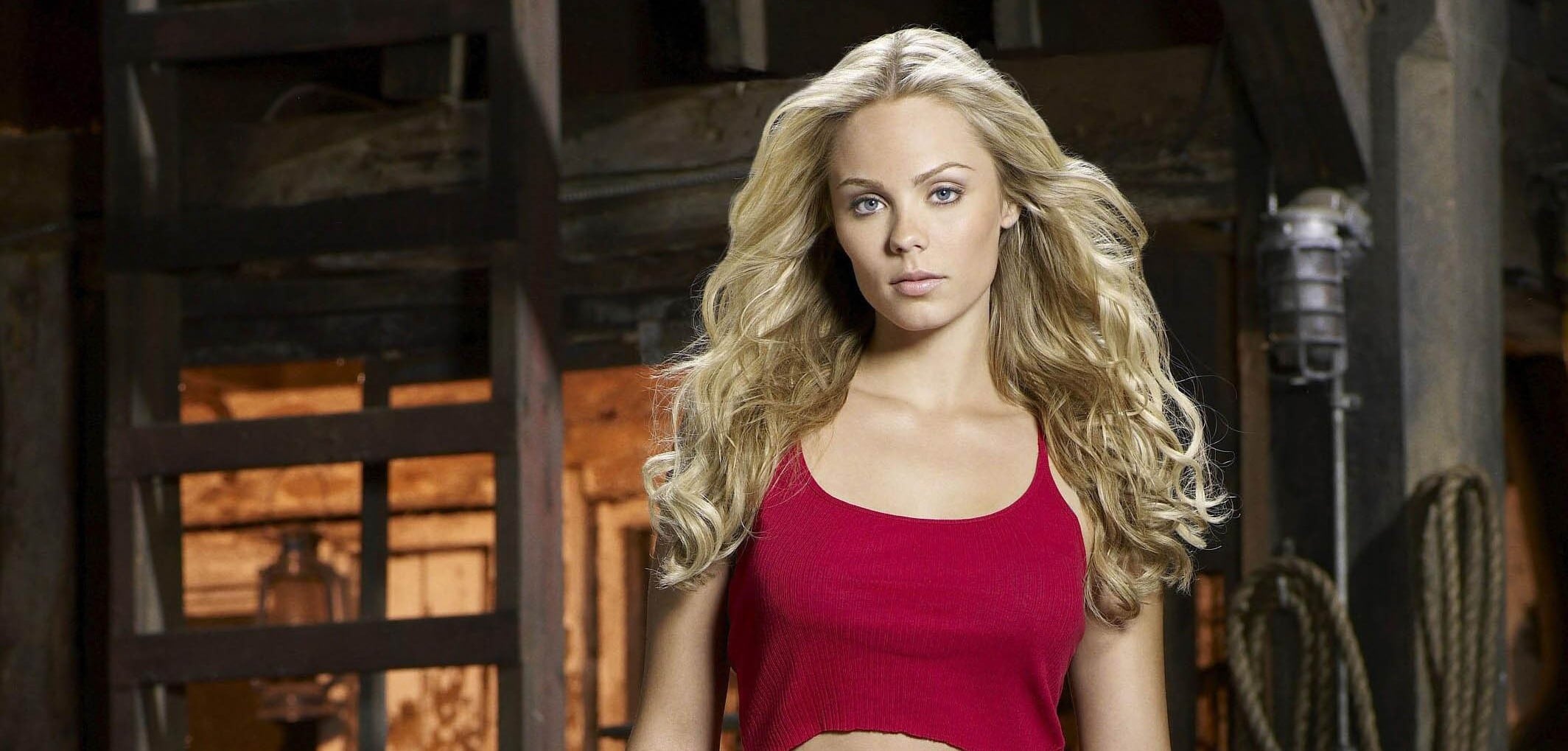Verdict: Supergirl’s second season begins the home stretch with a solid if unspectacular standalone instalment that gets the show back to telling the kinds of stories that only it can tell.
Review:
It’s been a month since Supergirl last graced our screens without any real cliffhanger to stimulate conversation over the hiatus, so even though we’re five episodes from the conclusion of season two, it feels like a good place to look back, and start over. Season two has done so much right, but it’s increasingly been mired in some frustrating habits in its 2017 run. Perhaps the core reason for that is simple: Supergirl was a show predicated on an original and vibrant storytelling voice, using its female lead and atypical social consciousness to tell stories no other superhero show could tell for about a season and a half. Recently, however, it’s used far more generic tropes as a crutch, moving away from its unique attribute to the well-worn superhero TV playbook of overwrought relationship drama, boilerplate villains and an excessive focus on the show’s male characters at the expanse of Kara and Alex.
One thing was clear, then: Supergirl needed this clean break. And, for the most part, Ace Reporter uses it. Obviously, there was no break in production as there was in the airing schedule, but it still feels like a chapter break existed between this instalment and the last which has allowed Supergirl to return to the kinds of stories it told at the top of this season while leaving many of its recent hang-ups such as the Mon-El saga. Ace Reporter doesn’t kickstart any big finish to the season, but it’s a fun and interesting standalone hour with a satisfying central theme.
The theme in question is one that’s on the minds of many right now: truth in journalism. The funny thing about Ace Reporter is that, if it were made last year, it wouldn’t have been as effective. Its affirmations of the need to unite behind well-sourced, honest reporting and to rise above partisan lies might have felt like truisms that were undoubtedly well-intentioned, but somewhat patronising in suggesting a debate that didn’t really exist in the mainstream. Yet here we are in 2017, the age of fake news and alternative facts, and different standards exist, where a firm defence of journalism is inspiring and necessary viewing. This isn’t to disparage Ace Reporter in any way – despite the fact that you could walk out the door and trip over a journalist character in superhero comics, comics are not always interested in the nitty-gritty of the profession and the ethics behind it, so a story that’s willing to be about journalism as opposed to using it as a convenient device would always have been worth telling. In fact, it’s worth saying that, now that it has both this story and the Cadmus’ forced-deportation allegory a few episodes back under its belt, Supergirl is proving within the Trump era that it has its finger to the pulse about the issues that matter in this tumultuous new political landscape, which is a marked difference to the more timeless feel of say, The Flash (or Legends of Tomorrow, but that’s a different kind of timeless). While Ace Reporter’s exploration of journalism is rarely piercing and doesn’t say anything explicitly political in a way Exodus did with Cadmus’ plan, there’s a satisfying detail and thought to this particular story such as with the emphasis on the vitality of independent sources (it’s a neat touch that the Spheerical story is corroborated by two sources, for instance) and the stirring conclusion that Kara reaches about journalism as a public service. It could help to be a notch bolder and more incisive, but more stories of this relevant and sincere kind would be a strong path forward for Supergirl, as it provides a kind of social commentary that’s unique to the show.
The reporter storyline is also a welcome one because it allows Supergirl to foreground one of its most interesting relationships, which is the friendship between Kara and Lena. Ace Reporter strikes a balance that isn’t always met in this storyline, which is to develop Lena’s own personal life and independence in a way that distances her from Kara without delving into a clichéd and rote conflict between the two friends. Lena’s affair with Jack Spheer isn’t the most original storyline, truth be told, revolving around the basic template of the spurned lover who returns and claims he’s a changed man only to hide a sinister secret, but it’s aided by a fun guest performance from iZombie’s Rahul Kohli. Kohli isn’t given a drastically different role to play for the most part than his iZombie character, but since he’s charismatic and emotionally resonant in the role and strikes up a convincing dynamic with Katie McGrath in just about zero time, he accomplishes his job with flying colours. It also allows Lena to become a richer character as she’s allowed a plotline that doesn’t revolve around the ‘is she evil?’ game regarding her family, which allows Katie McGrath to play a wider emotional gamut of enthusiastic hope, infatuation and then heartbreak to heighten our sympathy for Lena. Ace Reporter also makes a satisfying call in choosing not to drive her away from Kara where that would have been a very easy path for the episode to take. They have a disagreement over the role of Jack in her life, but the disagreement is nicely underplayed and never boils over into conflict as the two women come out of the experience with a stronger relationship with the other. Lena’s choice to kill Jack to save Kara is a big step in that friendship too, using the ticking clock of a classic final showdown to lay bare the depth of her emotional attachment to Kara, who seems far more committed to protecting her friend both emotionally and physically than ever before. Kara and Lena’s story does a good job of avoiding stale and sexist tropes of two women fighting over a man to instead celebrate a healthy and strong female friendship, and in that respect, that’s another tick in the box for Ace Reporter in rediscovering what Supergirl does best in comparison to its competitors.
Granted, there are some holes to be found in the A-plot. There’s some cheap and unconvincing contrivances made to force the story into action regarding how Kara becomes involved in the journalistic quest to uncover the truth about Spheerical that shows an inability on the show’s part to really take advantage of Kara’s independence as a freelance journalist. Snapper Carr is also something of a problem character here, given how much time is spent on him. The hard-boiled reporter shtick works well in small doses as something that’s both comical and insightful, but when he becomes an important character, those characteristics soon stray into caricature. Supergirl has had its dialogue issues for some time, admittedly, but it’s abundantly clear that no-one, not even the most jaded and traditionalistic journalist in the business, would speak or behave like him, which pulls the viewer out of scenes that are pretty insightful elsewhere. Likewise, the reveal of the ultimate villain is a damp squib. The novelty of Supergirl straying from the path of the reformed-but-evil-boyfriend clichés I mentioned above with Jack revealed to be little more than a literal puppet is something, but it doesn’t hold up a villain in the Spheerical CFO who is little more than a stock evil capitalist who is defeated with little trouble. This is one of those episodes where the villain isn’t really the point, but the CFO is such an afterthought of the character that Jack being the ultimate bad guy, as clichéd as that would have been, might have made a more interesting final showdown.
The real problem with Ace Reporter doesn’t come in the main storyline, however. Instead, it’s the B-plot that gets short shrift. It’s been Supergirl’s habit to keep several stories cooking on the fire at any given time, so the simple divide between an A and B plot seemed like commendable minimalism at first. Yet the Guardian storyline in Ace Reporter is so extraneous that the expanded amount of breathing room it has doesn’t count for anything. I’ve made it a running joke in the final observations of these reviews that James has been lost at sea as a character for several episodes now, and Supergirl doesn’t seem any surer about the character even when he’s afforded a storyline of his own – he just plays the standard role of the self-serious, lone wolf vigilante that ran out of gas weeks ago. Winn and Lyra’s relationship drama is at least something new, but it isn’t anything interesting. It sands away the interesting nuances of Lyra as a morally conflicted character in favour of making her crazy for comic purposes, and Winn becomes a purely reactive figure in the centre who learns nothing new from it all. I’m sure that there are interesting stories to be told with these characters, but not when they’re hived off in their own airless subplot that contributes nothing to the overall narrative or the themes of the episode. In an episode that leaves behind many of Supergirl’s recent mistakes, this misstep only sticks out further as an example of bad habits the show is yet to kick.
Ace Reporter is by no means a complete return to form. There are still storytelling problems that Supergirl will need to cast off to succeed, and the minimal progress in the overarching story this far out means that the remaining four episodes will have to do a lot to accrue enough momentum going into the finale. Nonetheless, with its focus on original and interesting themes mix social relevance and rewarding characterisation, it’s a step in the right direction that sees Supergirl engage with what made it unique in the first place. If the show can retain this focus in the final stretch of season two, then it’ll be on the road towards fixing its ills.
Odds & Ends
- The only real movement in the arc plot is Rhea swinging by Lena’s office to make her a ‘business proposition’. This has the potential to be really interesting, and given the good choices Supergirl has made with Lena so far, I’m trusting it not to make her into a villain overnight.
- This must have been the episode with the least Mon-El since… I honestly cannot remember given how fascinated recent episodes have been with him. To be fair to Mon-El, his few scenes tonight were very good, and showed that no matter your opinions on the character, Chris Wood can be golden with the right material.
- Also, no Alex (though there’s a remedy for that coming up) and very little J’onn. This was a surprisingly pared-down episode for the supporting cast.
- Legitimate question – if Snapper wants to run a hard-hitting journalistic business with scoops that are hot off the press and highly topical, then why is he running a glossy magazine that almost certainly doesn’t come out daily as opposed to, you know, an actual newspaper? I feel like he’d like those.
- Next episode – Alex! It’s the Alex Danvers special that you’ve all been waiting for, so how will it celebrate this fan favourite character? In a scene where she’s locked in a confined chamber that’s filled with water? Oh, okay. I see.


 Superman4 months ago
Superman4 months ago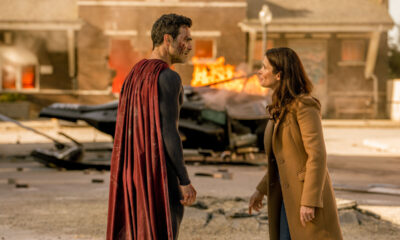
 Images5 months ago
Images5 months ago
 Images6 months ago
Images6 months ago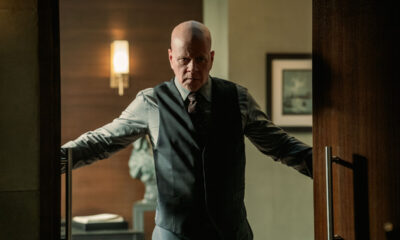
 Images5 months ago
Images5 months ago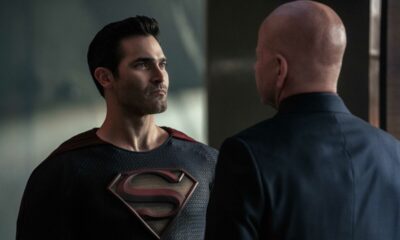
 Images5 months ago
Images5 months ago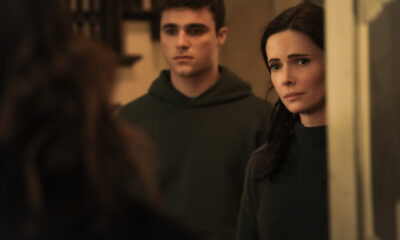
 Images7 months ago
Images7 months ago
 Images6 months ago
Images6 months ago
 Images6 months ago
Images6 months ago

